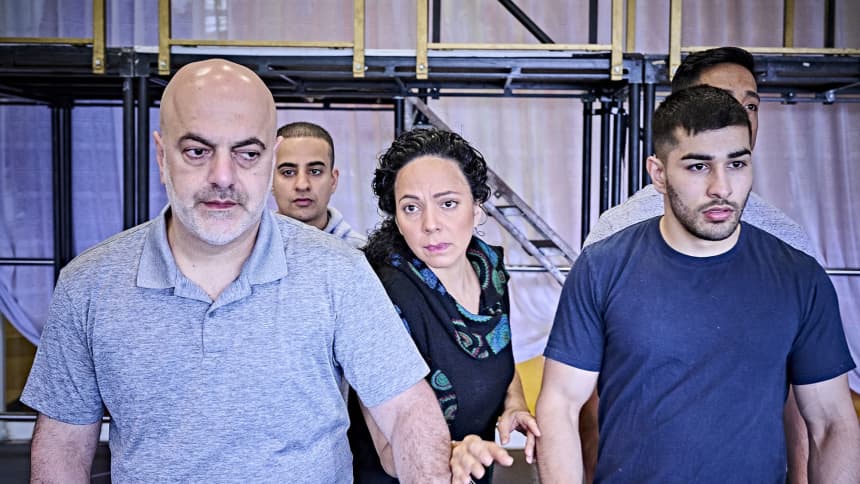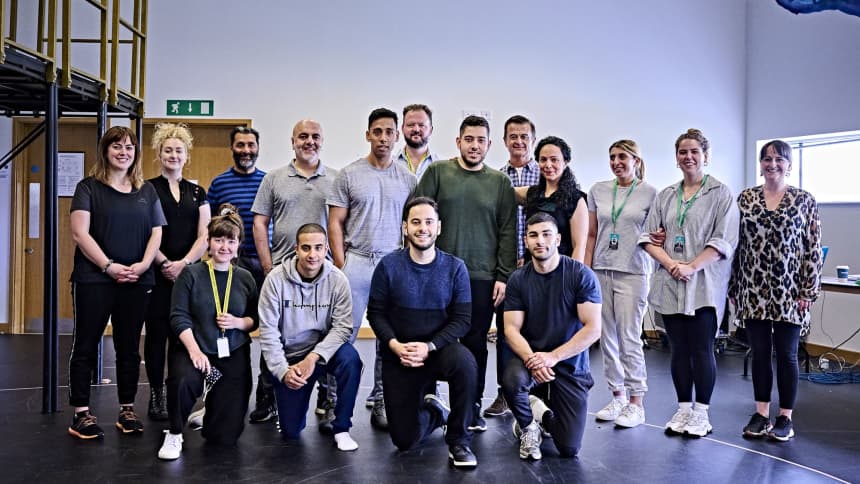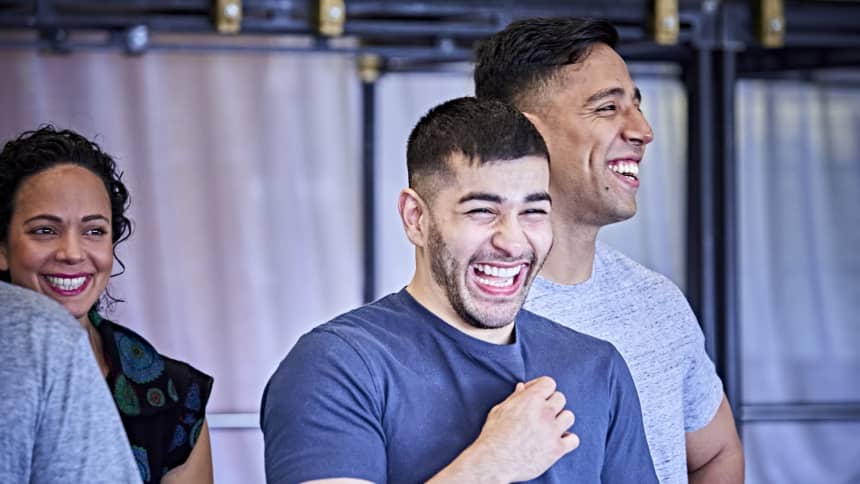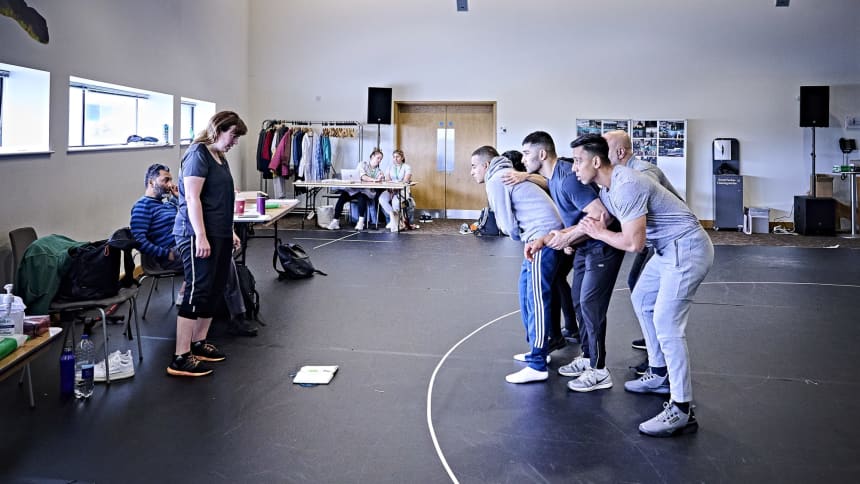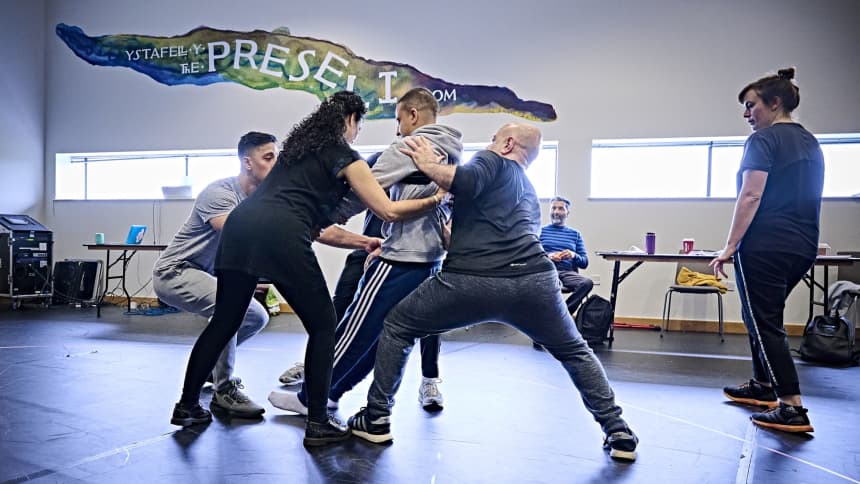It wouldn’t be quite correct to say that conflict is at the root of this play, which we saw on opening night at the Wales Millennium Centre.
The conflict in Afghanistan and the tight grip the Taliban had/have is where this story begins. But don’t go into the theatre thinking this is a story about war, politics or a struggle against oppression. THE BOY WITH TWO HEARTS is simply a love story, okay, maybe not so simple, but a love story it is.
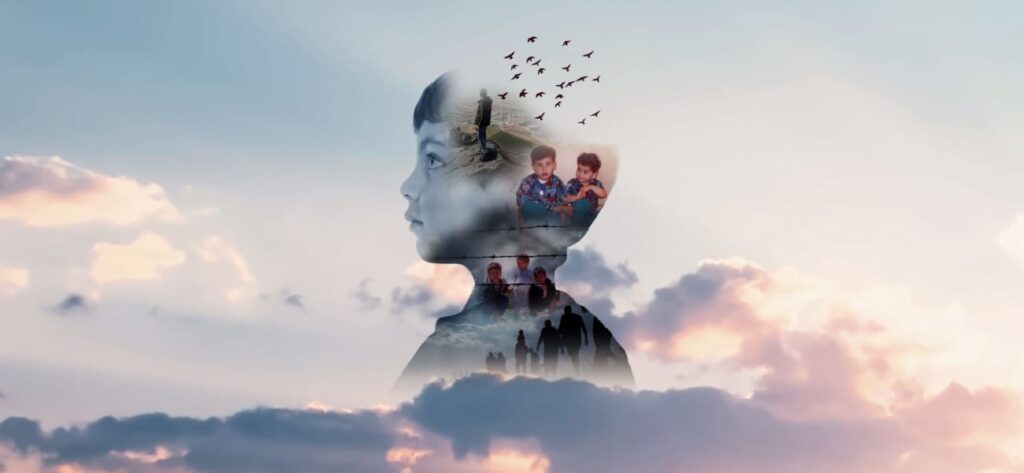
It’s a tale of a family, their love for their country and basic human rights. But it soon becomes a fight for freedom, a race against time, and five people who are determined to stick together, no matter what obstacles and challenges they face, and believe me the Amiri family have faced more than their fair share.
The story actually begins 21 years ago in Herat, Afghanistan.
The mother, Fariba (Géhane Strehler), speaks out against the fundamentalist leaders of her country. ‘Women are not here to be slaves to men, they are equal in every respect.’ A statement which goes against all the regime practice.
Meanwhile, her husband Mohammed (Dana Haqjoo) and the sons Hamed and Hessam (Farshid Rokey and Shamail Ali) who wrote the story, keep a watchful eye on eldest boy Hussein (Ahmad Sakhi), whose rare heart condition means he will never lead a normal life.
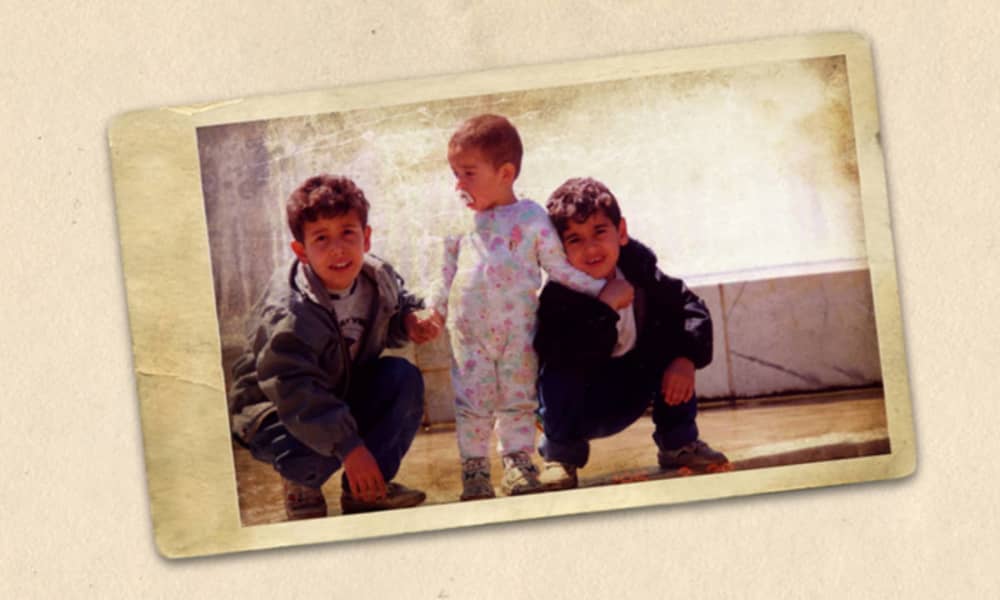
It may be a tale which is two decades old, but it’s a story which resonates as much today in the current climate.
When the Taliban gave an order for the execution of Fariba, the family knew they had to escape, starting what would be a long and dangerous journey, across Russia and through Europe, with the UK as their ultimate destination.
The play immediately pulls us in as the family are forced to sell off all their belongings to raise the cash to leave the country. You feel like you’re part of the ‘open house’ sale. The cast bantering with the audience as they try to get the best price for their wares.
Travelling as refugees for a year and a half, they suffered attacks from mafia and police; terrifying journeys in strangers’ cars; treks across demanding terrain; days spent hidden in lorries without food or drink; and being robbed at gunpoint of every penny they owned.
The family’s need to reach the UK was intensified by their eldest son’s deteriorating condition, and the prospect of life-saving treatment it offered.
So, as you sit in the auditorium waiting for the lights to dim, you can’t help but wonder just how you’ll be transported from the Weston Studio in Cardiff Bay, to a small village in Afghanistan, across thousands of miles, of sometimes treacherous terrain and eventually land back in Cardiff, and really feel you’ve been on that journey with the Amiri family.
Well, I can tell you, they do it brilliantly.
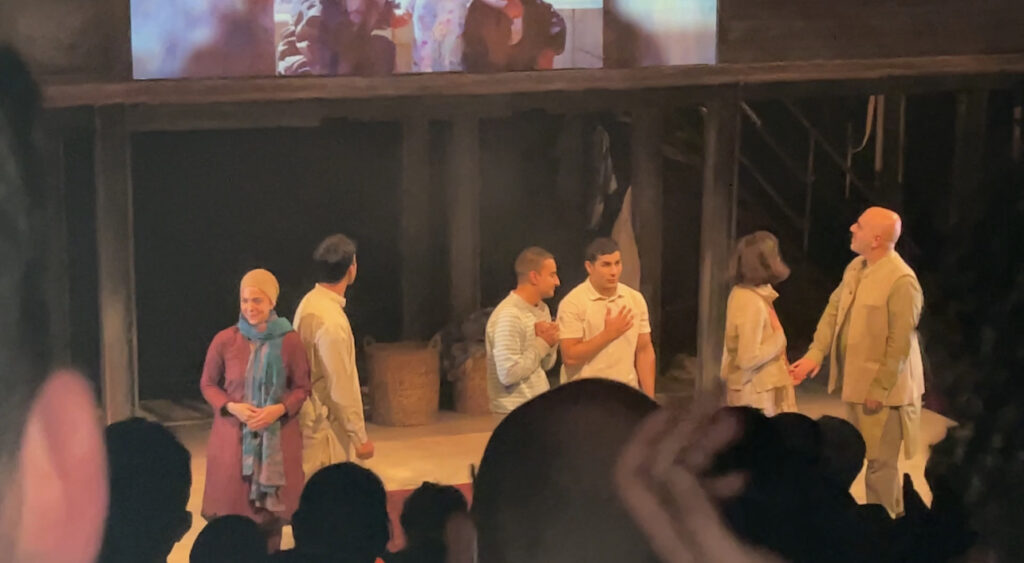
Yes, they employ clever use of projection and sounds, which fill the auditorium. The word aeroplane, for example, is projected onto the set as they take off along the runway. It may sound simple but it’s incredibly effective.
The set (designed by Hayley Grindle) is multi-functional and every inch of space is used. But what really takes us, on this sometimes hazardous journey, is the engaging story, the urgency for them to get to the UK for the treatment Hussein so desperately needs, and the skills of the actors to pull us in to every situation.
The music too is key to the plot and is co-written, with Tic Ashfield, and performed (superbly) by Elaha Soroor. She is there with us, watching from the background, but is an integral part of Hussein’s story when his medical condition hits.
As we said, this is a story about family, and with that comes all the things you get in a regular group of siblings; brotherly banter, they eat together, talk, cry, even get to watch TV. Even in the tensest of situations they also laugh together, so much laughter.
You will feel all your emotions during the production, but there are also plenty of moments of light relief, especially between the three sons.
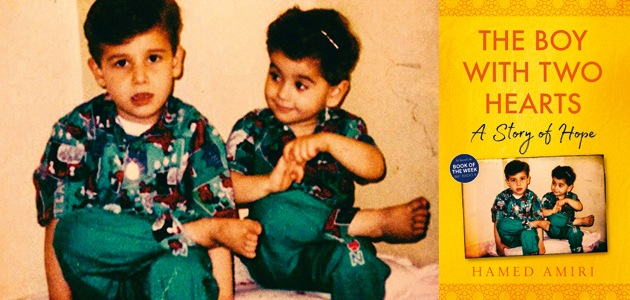
If ever there was a production to welcome the Wales Millennium Centre back after such a long, and enforced pandemic break, THE BOY WITH TWO HEARTS is it.
It is everything you would want in a home grown, new production. It’s powerful, moving, inspiring, and after the 18 months we have all been through, is a very moving love letter to our NHS.
Although the story isn’t linked in any way to the pandemic, it’s another demonstration of how the NHS provide hope and reassurance in our times of need.
The book on which the play is based was written by HAMED AMIRI, and I don’t think we’re underplaying just how important this piece is.
The story of family and love, combined with determination driven by fear, is something we can all take from, especially after the last 18 months.
We spoke to Hamed prior to opening night, during rehearsals at the theatre and talked about the production. But we began with that very point – the story seems as relevant today as it was when they fled Afghanistan in 2000.
Hamed Amiri was born in Herat, Afghanistan, and grew up under Taliban rule before escaping at the age of ten. He is a motivational speaker and influencer in the education sector, and a board member at Coleg Gwent, Wales.
In 2016 he was awarded the Inspiring the Next Generation Award by the University of South Wales for services to education and young people.
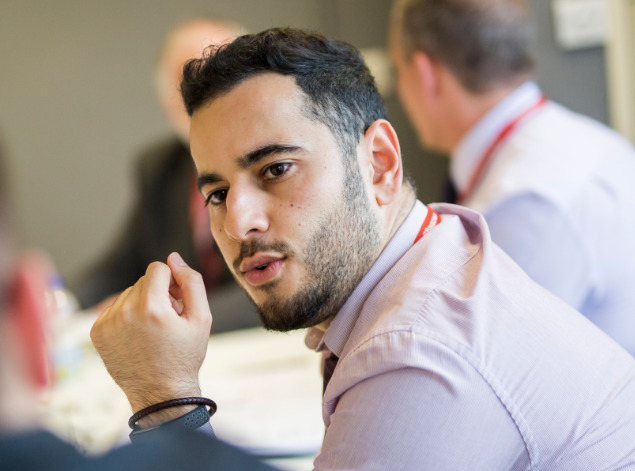
Inspired by his late brother’s passion for positive change in society, Hamed’s mission is to share his family’s story with a wide audience and change perceptions surrounding refugees and diversity. This is his first book, and now, his first play.
The image below will lead you to a page to purchase the book.

The Boy With Two Hearts is a story of hope, from Afghanistan to Wales. This is the first production of Wales Millennium Centre’s re-opening season and the first Welsh refugee story brought to the stage.
The Boy with Two Hearts is at the Wales Millennium Centre till the 23rd October. Tickets are available now and start at £15. You can get yours, and find out more HERE.

